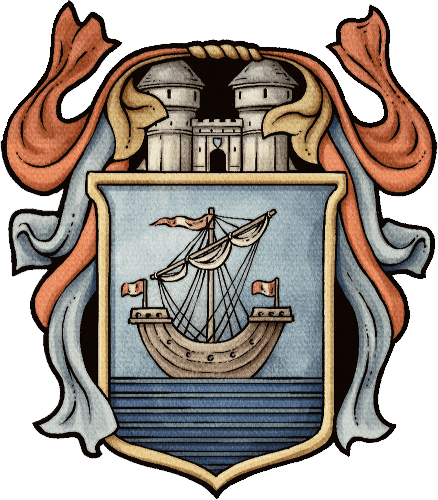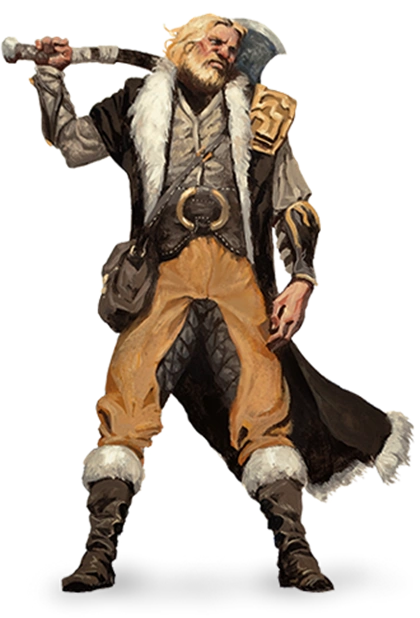
Barbarian
Barbarians are brave, even reckless warriors, and their great strength and heartiness makes them well suited for adventure. Barbarians scornfully reject the fighter traditions of arms training and discipline, instead tapping into a powerful rage that makes them stronger, tougher, and better able to withstand attacks. They only have the energy for a few such displays per day, but it is usually sufficient. Constant exposure to danger also gives barbarians a sort of “sixth sense,” a preternatural ability to sense danger and dodge attacks, and their running stamina is legendary.
Details
- Alignment Restrictions: Any nonlawful.
- Hit Die: d12.
- Proficiencies: All simple and martial weapons, light armor, medium armor, and shields.
- Skill Points (Int Modifier * 4 at 1st level): 4 + Int Modifier.
- Ex-Barbarians: Barbarians are unable to progress in levels if their alignment ever becomes lawful.
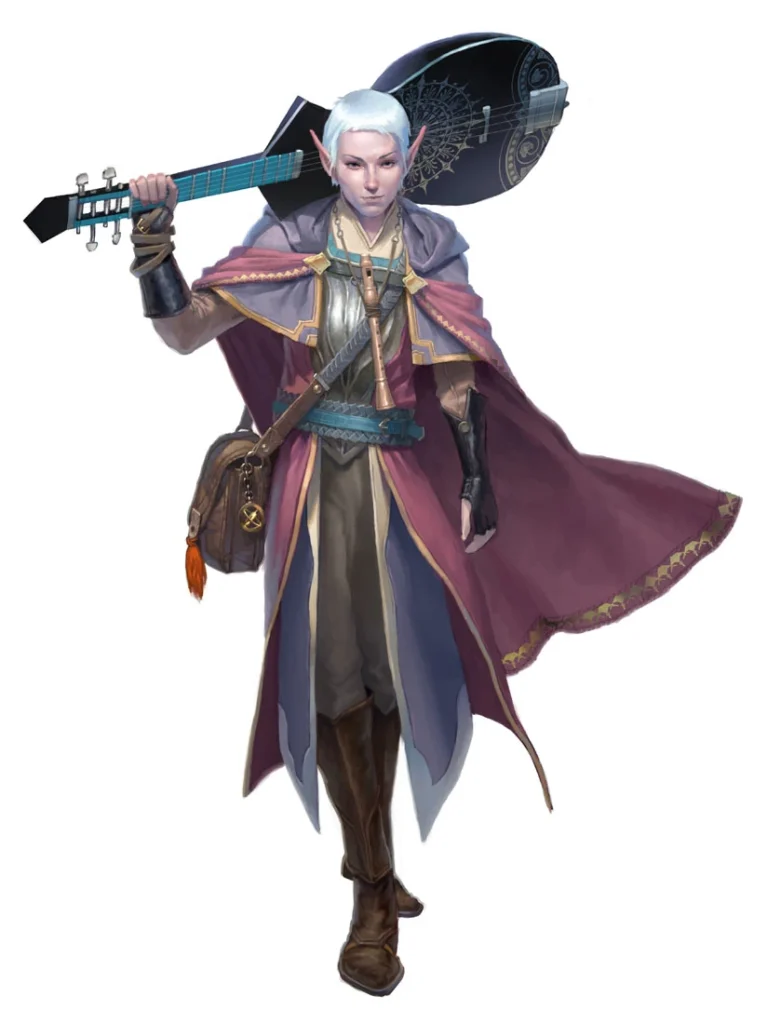
Bard
Bards often serve as negotiators, messengers, scouts, and spies. They love to accompany heroes (and villains) to witness heroic (or villainous) deeds firsthand, since a bard who can tell a story from personal experience earns renown among his fellows. A bard casts arcane spells without any advance preparation, much like a sorcerer. His magic emphasizes charms and illusions, and the bard can also play an inspiring song that strengthens him and his allies. Bards also share some specialized skills with rogues, and their knowledge of item lore is nearly unmatched.
WARNING: To cast a spell, a bard must have a Charisma score of 10 + the spell’s level. For example, to cast a 3rd-level spell, a bard must have a Charisma of 13.
Details
- Alignment Restrictions: Any nonlawful.
- Hit Die: d6.
- Proficiencies: Proficient with simple weapons. Also proficient with light armor, medium armor, and shields.
- Skill Points (*4 at 1st level): 4 + Int Modifier.
- SPELLCASTING: Arcane (Charisma-based, no spell preparation, spell failure from armor is a factor); Bards begin the game knowing all cantrips.
- Ex-Bards: Bards cannot gain levels of experience while they are of any lawful alignment.
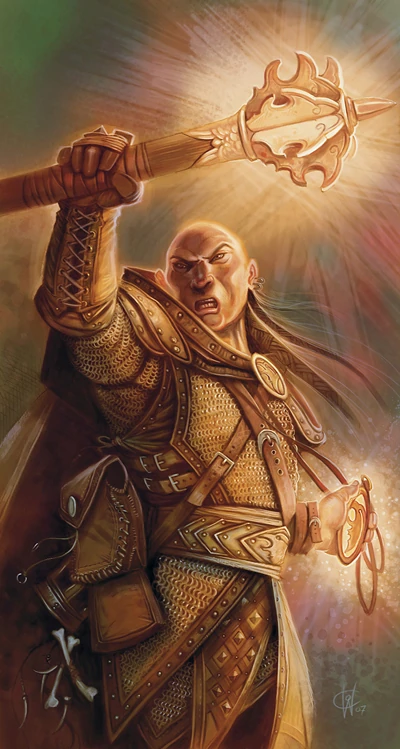
Cleric
Clerics act as intermediaries between the earthly and the divine (or infernal) worlds. A good cleric helps those in need, while an evil cleric seeks to spread his patron’s vision of evil across the world. All clerics can heal wounds and bring people back from the brink of death, and powerful clerics can even raise the dead. Likewise, all clerics have authority over undead creatures, and they can turn away or even destroy these creatures. Clerics are trained in the use of simple weapons, and can use all forms of armor and shields without penalty, since armor does not interfere with the casting of divine spells. In addition to his normal complement of spells, every cleric chooses to focus on two of his deity’s domains. These domains grants the cleric special powers, and give him access to spells that he might otherwise never learn.
WARNING: To cast a spell, a cleric must have a Wisdom score of 10 + the spell’s level. For example, to cast a 2nd-level spell, a cleric must have a Wisdom of 12.
Details
- Hit Die: d8.
- Proficiencies: All simple weapons, all armor, and shields.
- Skill Points (*4 at 1st level): 2 + Int Modifier.
- Spellcasting: Divine (Wisdom-based, spell failure from armor is ignored).
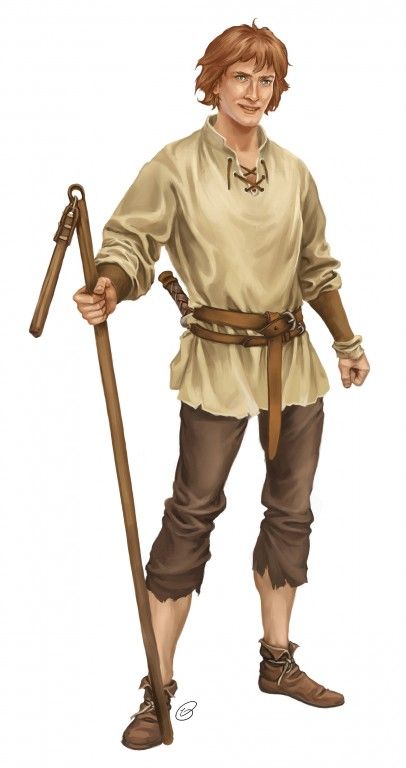
Commoner
You are a masochist and for some reason you want to try to play a commoner more power to you!
Details
- Hit Die: d6
- You will get Commoner starting ability scores.
- You will get Commoner starting skill points.
- You will get no armor proficiencies
- You will get no weapon profeciencies
- You will get bragging rights
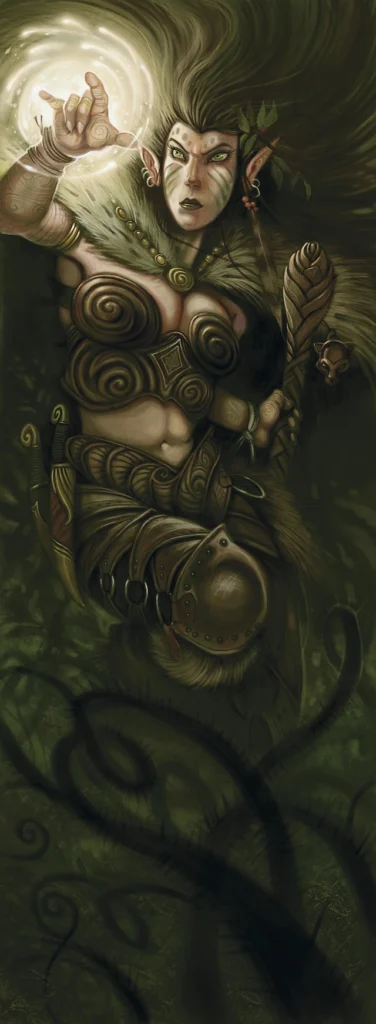
Druid
Druids are divine spellcasters who receive their spells from nature, not the gods. They strive to live in harmony with the natural world, and hate anything that is not part of the natural cycle, especially aberrations and undead creatures. As they gain experience, they learn to take the shapes of animals and eventually of more powerful creatures. The strict oaths taken by every druid prohibit using weapons and armor outside their tradition.
WARNING: To cast a spell, a druid must have a Wisdom score of 10 + the spell’s level. For example, to cast a 4th-level spell, a druid must have a Wisdom of 14.
Details
- Alignment Restrictions: Must be neutral good, lawful neutral, true neutral, chaotic neutral, or neutral evil.
- Hit Die: d8.
- Proficiencies: Proficient with druidic weapons, as well as light and medium armor and shields.
- Skill Points (*4 at 1st level): 4 + Int Modifier.
- Spellcasting: Divine (Wisdom-based, armor-related chance of spell failure is ignored).
- Ex-Druids: A druid who is no longer neutral cannot gain levels.
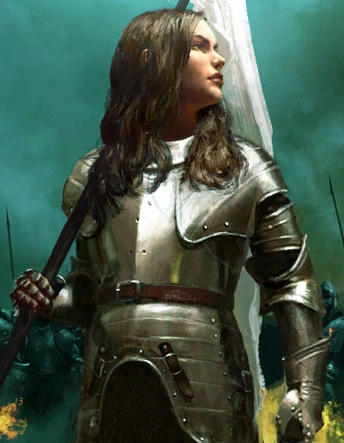
Favoured Soul
The Favoured Soul follows the path of the cleric but is able to channel divine power with surprising ease. She is able to perform the same tasks as her fellow divine spellcasters but with virtually no study; to her, it comes naturally. Scholars wonder if Favoured Souls have traces of outsider blood from unions. holy or unholy, centuries ago and generations removed. Others suggest that divine training of the proper type awakens the ability, or that Favoured Souls are simply imbued with their gifts by their gods when they begin the cleric’s path. In any case, Favoured Souls cast their spells naturally, as much through force of personality as through study. Though this gives them extraordinary divine abilities no normal person could ever match, they see their gift as a call to action, and so in some ways lag behind their more studious colleagues.
WARNING: To cast a spell, the Favoured Soul must have a Charisma score of 10 + the spell level. The DC of a Favoured Soul’s spell is 10 + Spell Level + Wisdom Modifier. A Favoured Soul’s caster level is equal to his class level. He has access to any spell from the Cleric spell list, and casts spells as a Sorcerer does.
Details
- Hit Die: d8
- Proficiencies: A Favoured Soul gains proficiencies with Simple Weapons, Light and Medium Armour, and Shields.
- Skill Points: 2 + Int Modifier
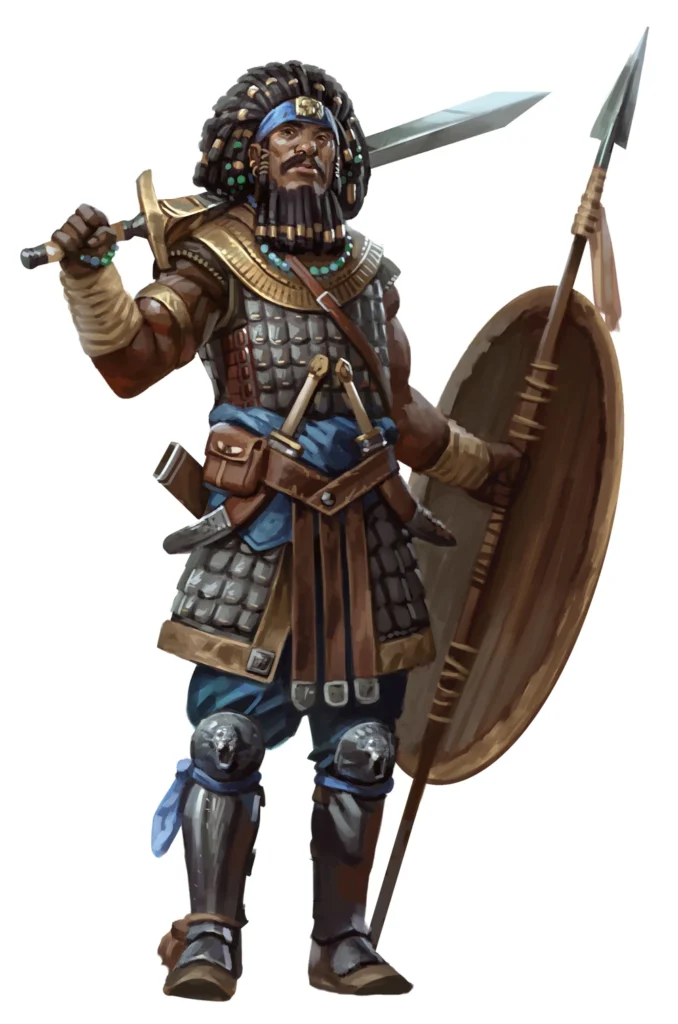
Fighter
Fighters can be many things, from soldiers to criminal enforcers. Some see adventure as a way to get rich, while others use their skills to protect the innocent. Fighters have the best all-around fighting capabilities of the PC classes, and they are trained to use all standard weapons and armor. A fighter’s rigorous martial training grants him many bonus feats as he progresses, and high-level fighters have access to special melee maneuvers and exotic weapons not available to any other character.
Details
- Hit Die: d10.
- Proficiencies: All simple and martial weapons, all armor, and shields.
- Skill Points (*4 at 1st level): 2 + Int Modifier.
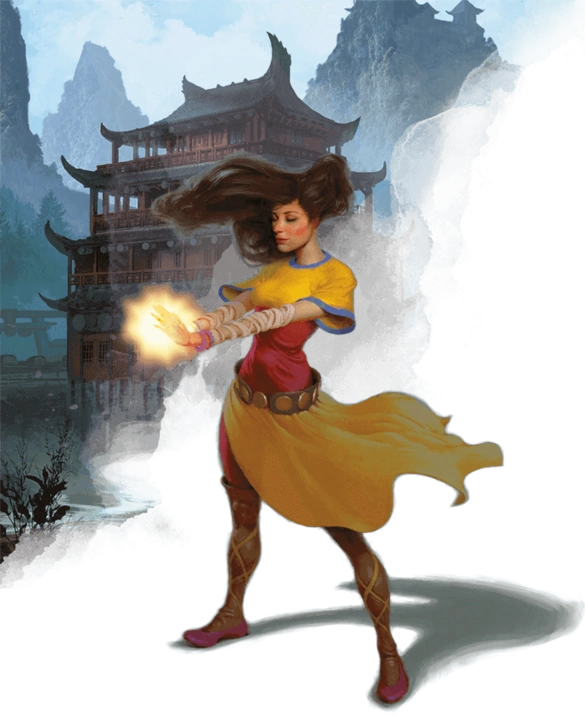
Monk
Monks are versatile warriors skilled at fighting without weapons or armor. Good-aligned monks serve as protectors of the people, while evil monks make ideal spies and assassins. Though they don’t cast spells, monks channel a subtle energy, called ki. This energy allows them to perform amazing feats, such as healing themselves, catching arrows in flight, and dodging blows with lightning speed. Their mundane and ki-based abilities grow with experience, granting them more power over themselves and their environment. Monks suffer unique penalties to their abilities if they wear armor, as doing so violates their rigid oaths. A monk wearing armor loses their Wisdom and level based armor class bonuses, their movement speed, and their additional unarmed attacks per round.
Details
- Alignment Restrictions: Any lawful.
- Hit Die: d8.
- Proficiencies: Proficient with monk weapons.
- Skill Points (*4 at 1st level): 4 + Int Modifier.
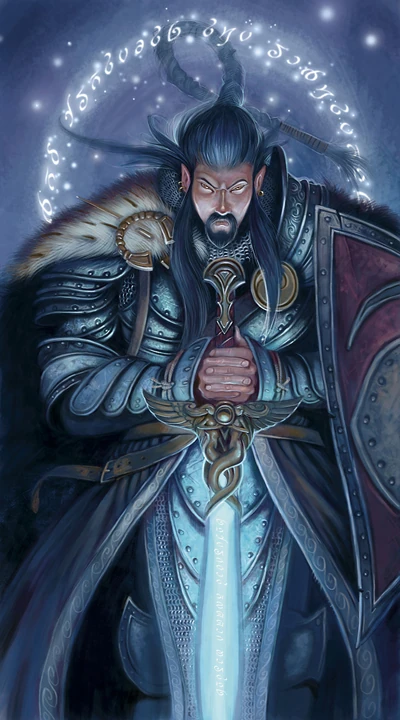
Paladin
Paladins take their adventures seriously, and even a mundane mission is, in the heart of the paladin, a personal test – an opportunity to demonstrate bravery, to learn tactics, and to do good in the world. Divine power protects these warriors of virtue, warding off harm, protecting them from disease, healing them and their allies, and guarding against fear. Divine power also guides their sword arms, making them among the most effective warriors against undead and evil outsiders. Many of the paladin’s special abilities also benefit from a high Charisma score.
WARNING: To cast a spell, a paladin must have a Wisdom score of 10 + the spell’s level. For example, to cast a 2nd-level spell, a paladin must have a Wisdom of 12.
Details
- Alignment Restrictions: Lawful good only.
- Hit Die: d10.
- Proficiencies: All simple and martial weapons, all armor, and shields.
- Skill Points (*4 at 1st level): 2 + Int Modifier.
- Spellcasting: Paladin Spells. Divine (Wisdom based, armor-related chance of spell failure is ignored).
- Ex-Paladins: A paladin that is no longer lawful good cannot gain levels until their alignment is lawful good again.
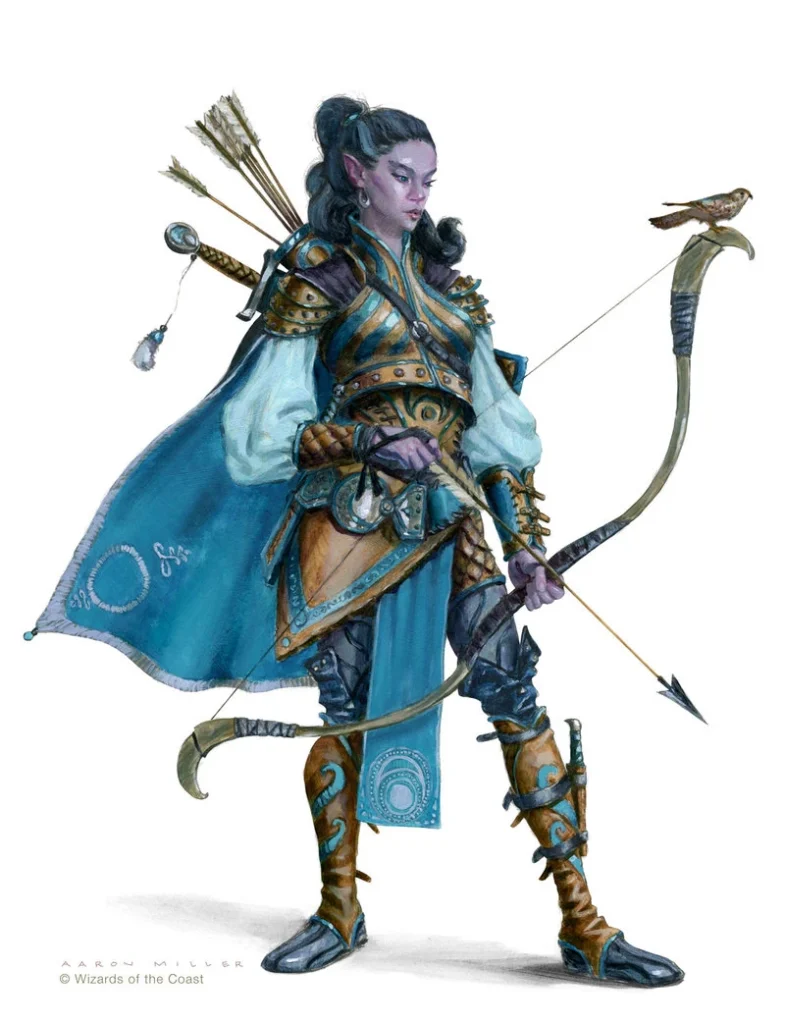
Ranger
Rangers are skilled stalkers and hunters who make their home in the woods. Their martial skill is nearly the equal of the fighter, but they lack the latter’s dedication to the craft of fighting. Instead, the ranger focuses his skills and training on a specific enemy – a type of creature he bears a vengeful grudge against and hunts above all others. Rangers often accept the role of protector, aiding those who live in or travel through the woods. His skills allow him to move quietly and stick to the shadows, especially in natural settings, and he also has special knowledge of certain types of creatures. Finally, an experienced ranger has such a tie to nature that he can actually draw on natural power to cast divine spells, much as a druid does, and like a druid he is often accompanied by animal companions.
WARNING: To cast a spell, a ranger must have a Wisdom score of 10 + the spell’s level. For example, to cast a 3rd-level spell, a ranger must have a Wisdom of 13.
Details
- Hit Die: d10.
- Proficiencies: All simple and martial weapons, light and medium armor, and shields.
- Skill Points (*4 at 1st level): 4 + Int Modifier.
- Spellcasting: Ranger Spells. Divine (Wisdom based, armor-related chance of spell failure is ignored).
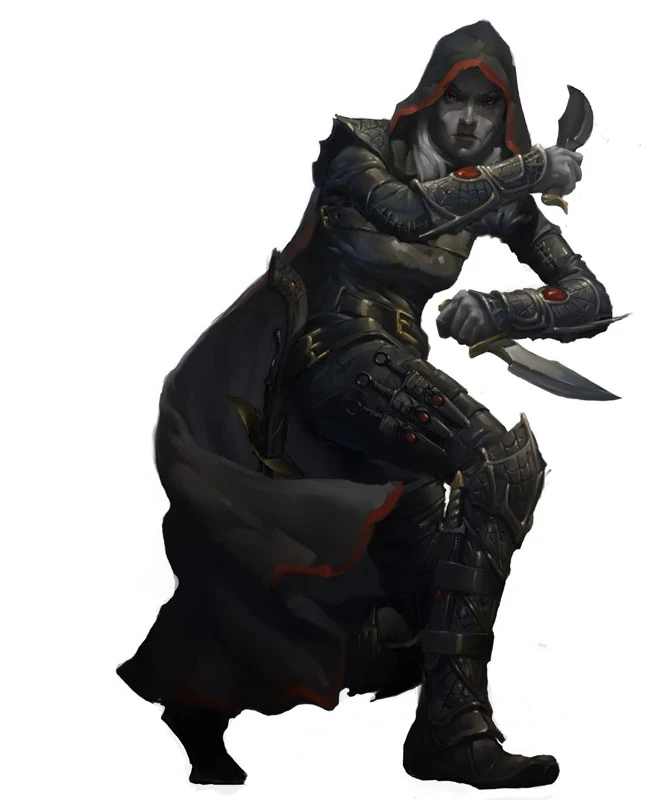
Rogue
Rogues have little in common with each other. While some – maybe even the majority – are stealthy thieves, many serve as scouts, spies, investigators, diplomats, and simple thugs. Rogues are versatile, adaptable, and skilled at getting what others don’t want them to get. While not equal to a fighter in combat, a rogue knows how to hit where it hurts, and a sneak attack can dish out a lot of damage. Rogues also seem to have a sixth sense when it comes to avoiding danger. Experienced rogues develop nearly magical powers and skills as they master the arts of stealth, evasion, and sneak attacks. In addition, while not capable of casting spells on their own, a rogue can sometimes “fake it” well enough to cast spells from scrolls, activate wands, and use just about any other magic item.
Details
- Hit Die: d6.
- Proficiencies: Proficient with rogue weapons and light armor. Rogues are not proficient with shields.
- Skill Points (*4 at 1st level): 8 + Int Modifier.
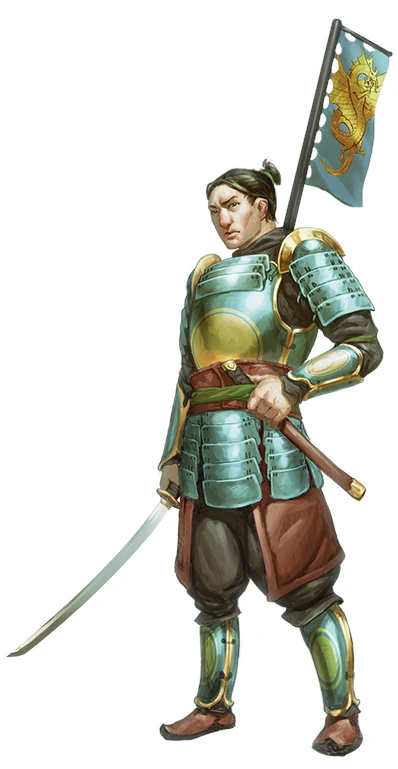
Samurai
Samurai are professional warriors; members of the noble class, trained in the art of warfare. Born into a society which values unswerving loyalty and honour above all else, the Samurai is trained from childhood in a value system that influences every area of life.
A disgraced or masterless Samurai cut loose from this all-pervading value system is no longer considered a Samurai, but rather a common mercenary fighter – a Ronin with no honour and no standing in society.
Details
- Alignment Restrictions: Any lawful.
- Hit Die: d10.
- Proficiencies: All simple and martial weapons, plus katana. Medium and light armor.
- Skill Points: 4 + Int Modifier.
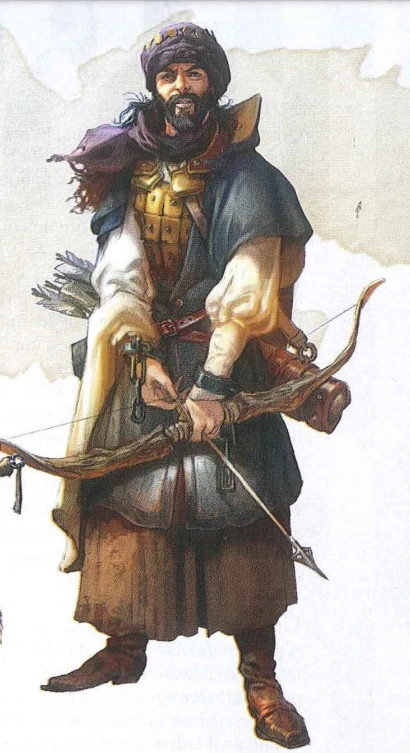
Scout
Any force on the move, whether it’s an army or an adventuring group, needs information about what’s ahead and what’s behind and, most important, time to prepare for battle. A Scout can navigate difficult terrain at good speed, and she specializes in seeing her foe before the opponent ever detects her presence. In a dungeon or in the wild, a Scout is only seen when she wants to be.
Details
- Hit Die: d8
- Proficiencies: A Scout is proficient with simple and rogue weapons, as well as light armor, but no shields.
- Skill Points: 8 + Int Modifier
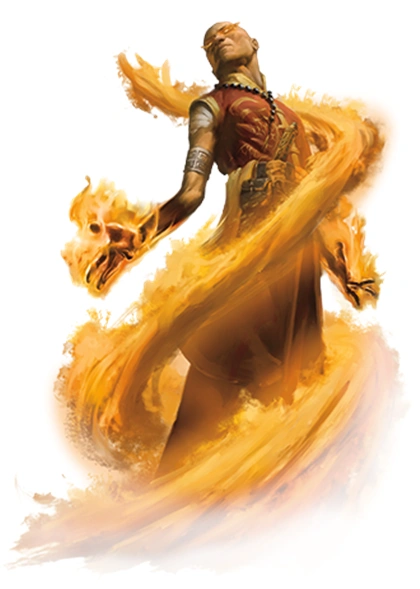
Sorcerer
Sorcerers are arcane spellcasters who manipulate magic energy with imagination and talent rather than studious discipline. They have no books, no mentors, no theories – just raw power that they direct at will. Sorcerers know fewer spells than wizards do and acquire them more slowly, but they can cast individual spells more often and have no need to prepare their incantations ahead of time. Also unlike wizards, sorcerers cannot specialize in a school of magic. Since sorcerers gain their powers without undergoing the years of rigorous study that wizards go through, they have more time to learn fighting skills and are proficient with simple weapons.
WARNING: To cast a spell, a sorcerer must have a Charisma score of 10 + the spell’s level. For example, to cast a 9th-level spell, a sorcerer must have a Charisma of 19.
Details
- Hit Die: d4.
- Proficiencies: All simple weapons. Sorcerers are not proficient with armor or shields.
- Skill Points (*4 at 1st level): 2 + Intelligence Modifier.
- Spellcasting: Arcane (Charisma-based, no spell preparation, spell failure from armor is a factor).
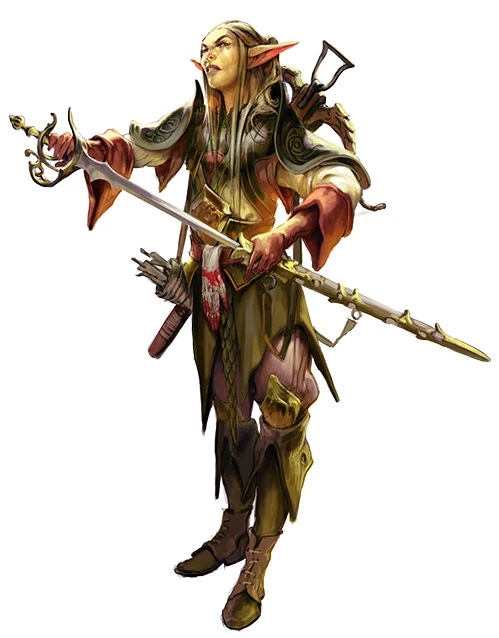
Swashbuckler
The Swashbuckler embodies the concepts of daring and panache. Favoring agility and wit over brute force, the swashbuckler excels both in combat situations and social interactions, making them a versatile character indeed.
Details
- Hit Dice: d10.
- Proficiencies: Swashbucklers are proficient with simple and martial weapons, and light armor.
- Skill Points: 4 + Int Modifier (x 4 at 1st level).
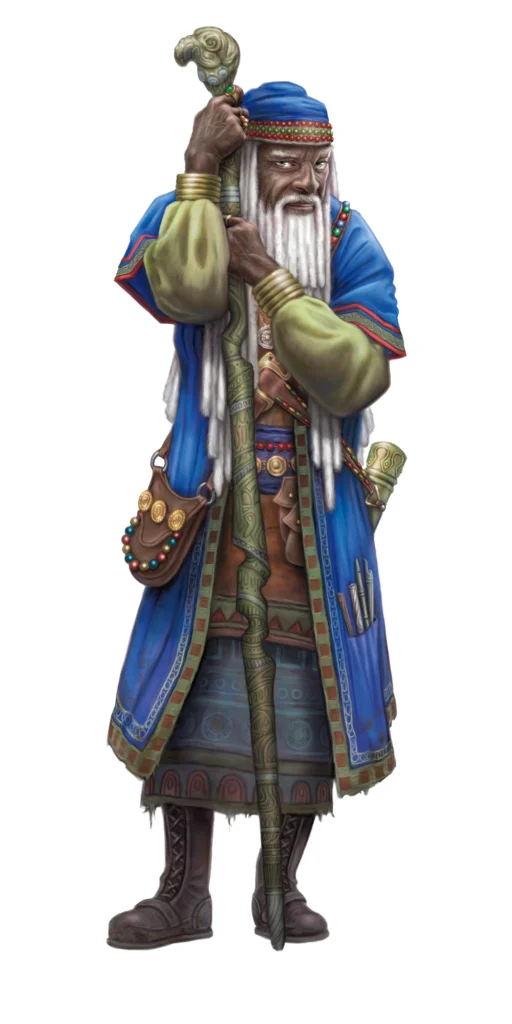
Wizard
Wizards are arcane spellcasters who depend on intensive study to create their magic. To wizards, magic is not a talent but a difficult, rewarding art. When they are prepared for battle, wizards can use their spells to devastating effect. When caught by surprise, they are vulnerable. The wizard’s strength is her spells; everything else is secondary. She learns new spells as she experiments and grows in experience, and she can also learn them from other wizards. In addition, over time a wizard learns to manipulate her spells so they go farther, work better, or are improved in some other way. A wizard can call a familiar: a small, magical, creature that serves her.
WARNING: To cast a spell, a wizard must have a Intelligence score of 10 + the spell’s level. For example, to cast a 9th-level spell, a wizard must have a Intelligence of 19.
Details
- Hit Die: d4.
- Proficiencies: Proficient with wizard weapons. Wizards are not proficient with armor or shields.
- Skill Points (*4 at 1st level): 2 + Int Modifier.
- Spellcasting: Arcane (Intelligence-based, spell preparation is required, spell failure from armor is a factor); wizards begin the game knowing all cantrips and four 1st-level spells.
